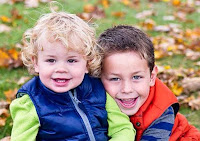In recent blogs we have concentrated on outside forces
determined to destroy traditional marriage. But what about those forces within
marriage that lead to breakup. Easy divorce and increasing common law union
make marriage a transitory alliance, and with it the loss of stability and
security.
 This age cries for conservation, recycling, that we treat the
earth with respect. But euthanasia and abortion have devalued earth’s most
sacred commodity, human life. Now divorce continues the legacy of abortion, not
in disposing of children, but destroying their ability to cope with life.
This age cries for conservation, recycling, that we treat the
earth with respect. But euthanasia and abortion have devalued earth’s most
sacred commodity, human life. Now divorce continues the legacy of abortion, not
in disposing of children, but destroying their ability to cope with life.
Judith Wallenstein’s study of children of divorce, The Unexpected Legacy of Divorce, makes
sobering reading. Here is an excerpt.
The life histories of this first generation to grow up in a divorce
culture tell us truths we dare not ignore. Their message is poignant, clear,
and contrary to what so many want to believe. They have taught me the
following:
From the viewpoint of the children, and counter to what happens to
their parents, divorce is a cumulative experience. Its impact increases over
time and rises to a crescendo in adulthood. At each developmental stage,
divorce is experienced anew in different ways. In adulthood, it affects
personality, the ability to trust, expectations about relationships, and
ability to cope with change.
The first upheaval occurs at the breakup. Children are frightened and
angry, terrified of being abandoned by both parents, and they feel responsible for
the divorce. Most children are taken by surprise; few are relieved. As adults,
they remember with sorrow and anger how little support they got from their
parents when it happened.
They recall how they were expected to adjust overnight to a terrifying
number of changes that confounded them. Even children who had seen or heard
violence at home made no connection between that violence and the decision to
divorce. The children concluded early on, silently and sadly, that family
relationships are fragile and that the tie between a man and woman can break
capriciously, without warning. They worried ever after that parent-child
relationships are also unreliable and can break at any time.
Easy divorce? Easy for whom? Certainly not the children who
learn early in life relationships cannot be trusted, and so are prone to repeat
the cycle later in life. Most of the grown children of divorce in Judith’s
study said vigorously, “I never want a child of mine to experience a childhood
like I had.” Sadly, their parents’ divorce robbed many of the tools needed to
avoid it.
 Divorce is not subject to laws that tighten or ease divorce.
Laws in most countries tend to follow the dictates of its citizens. As I stated
in an earlier blog, once sex becomes recreational, children become an
inconvenience to personal “happiness.” That idea flows into marriage and, too
often, the children become secondary.
Divorce is not subject to laws that tighten or ease divorce.
Laws in most countries tend to follow the dictates of its citizens. As I stated
in an earlier blog, once sex becomes recreational, children become an
inconvenience to personal “happiness.” That idea flows into marriage and, too
often, the children become secondary.
None of this denies the intense pain that many go through;
divorce hurts everyone involved. While probably no direct fault of our own, we
are caught up in a self-absorbed culture. But the culture is a product of
individual desires, and any cultural change must start with me, the individual.
What are my priorities?
